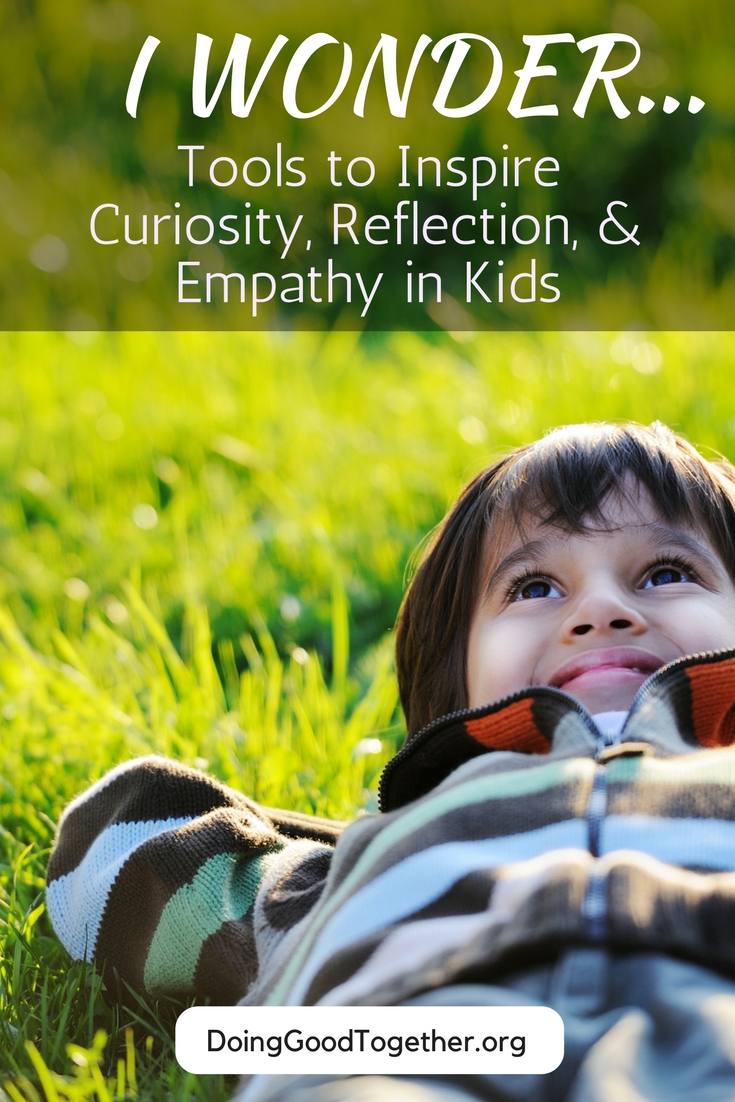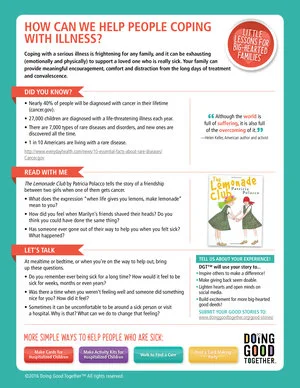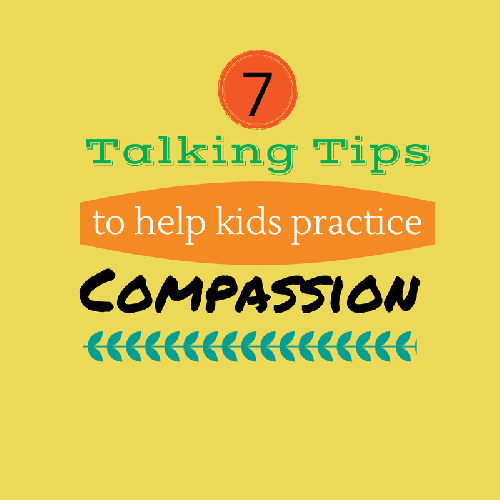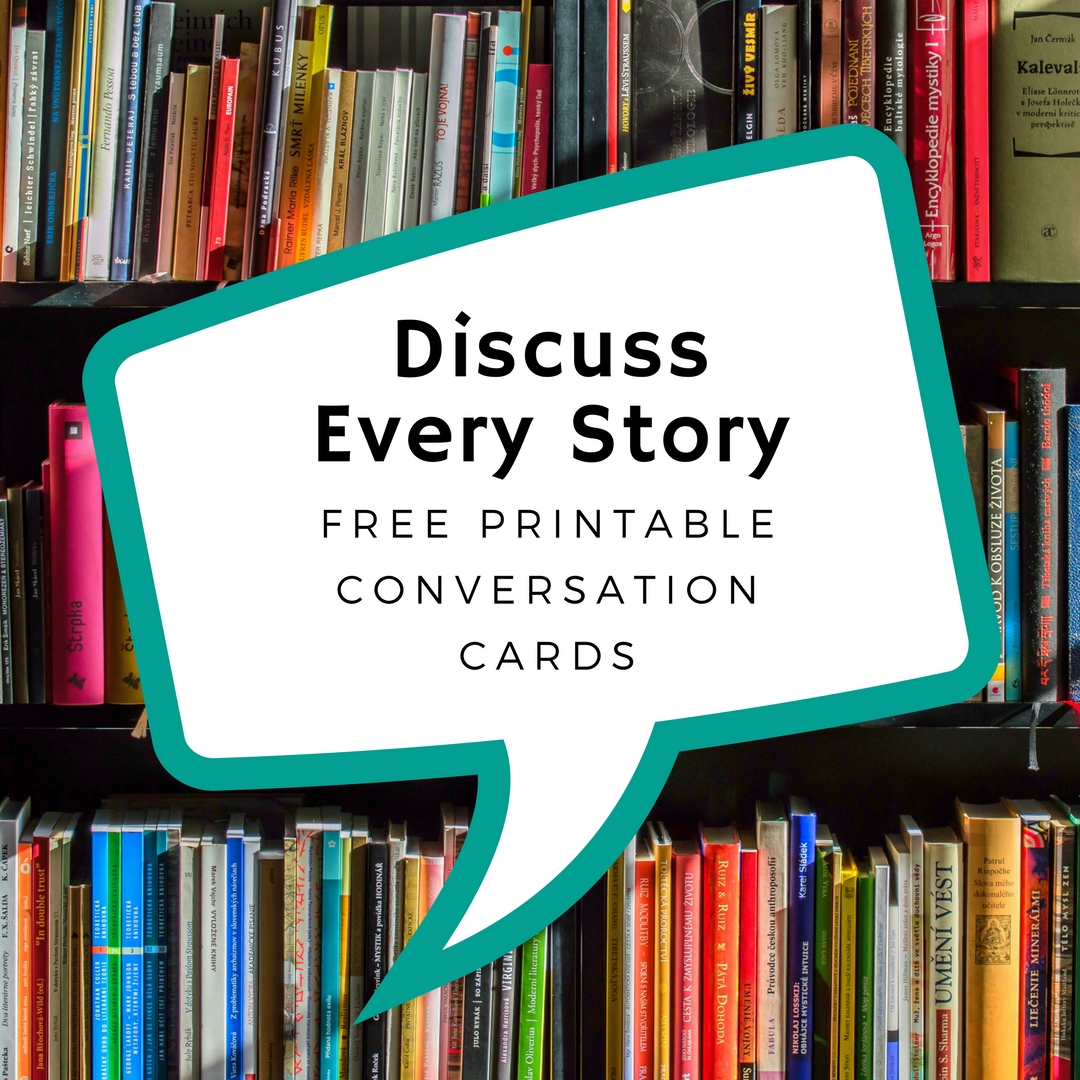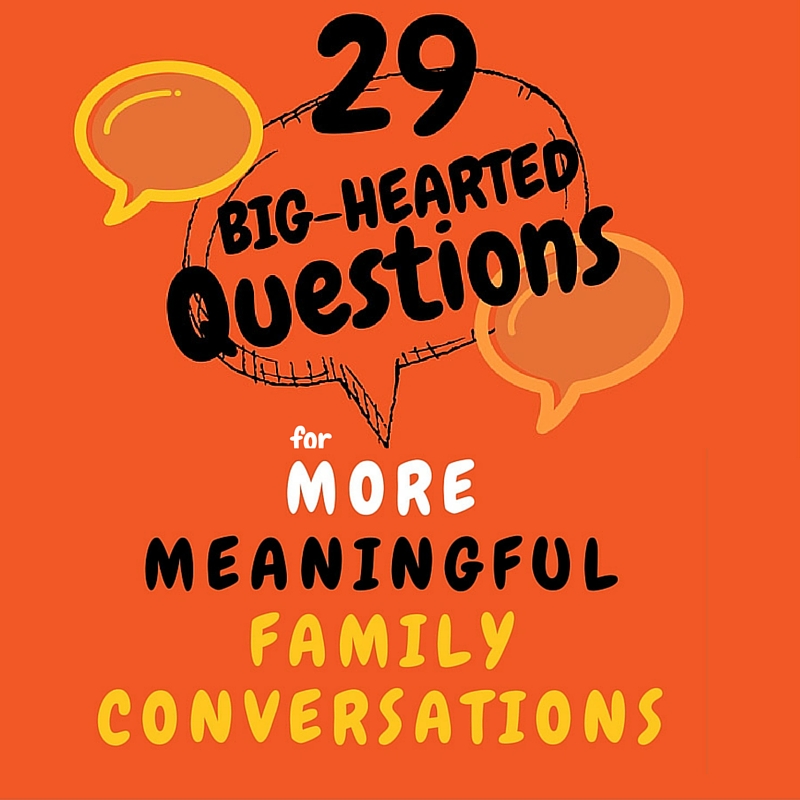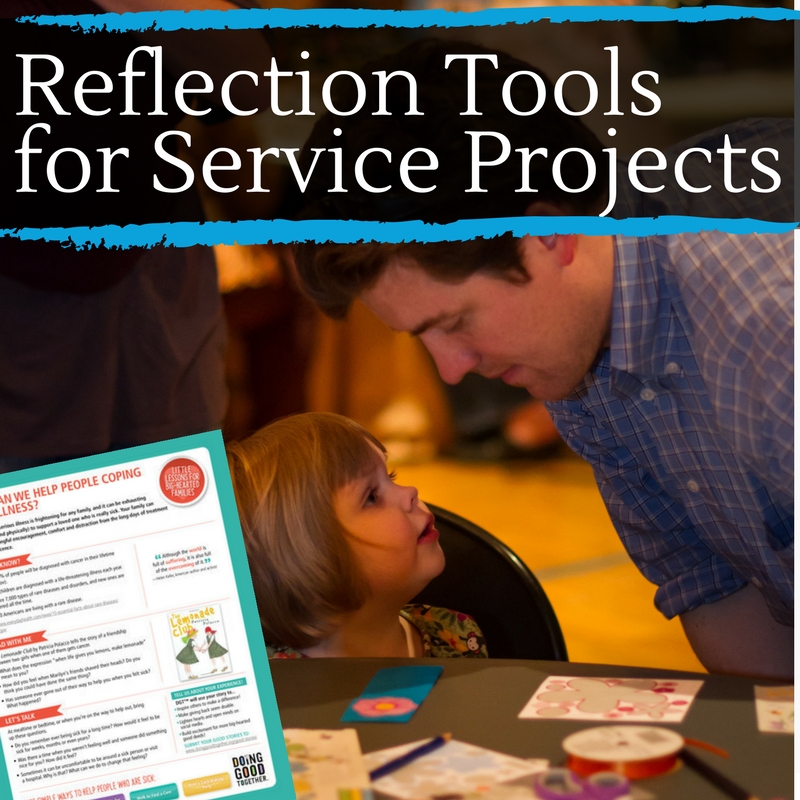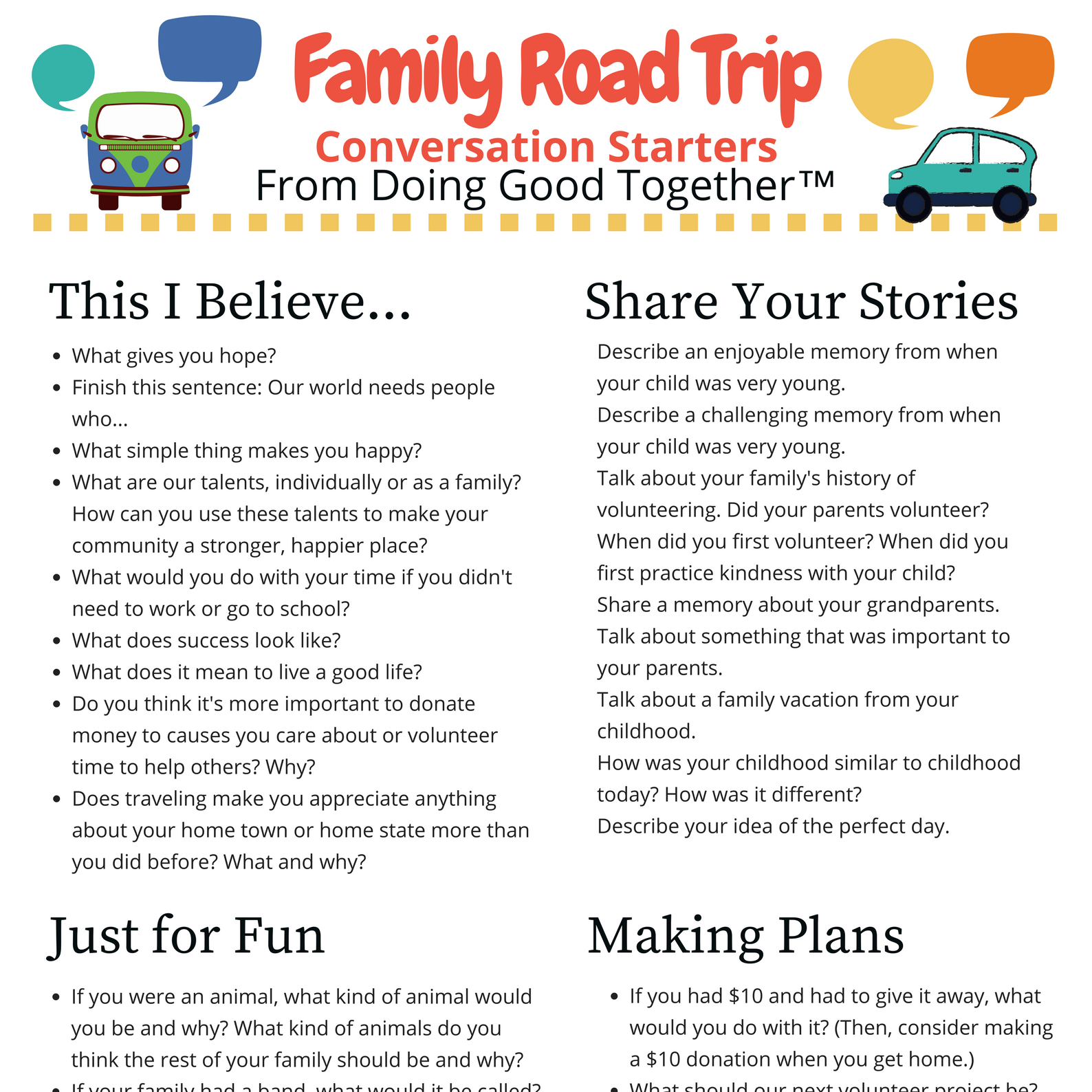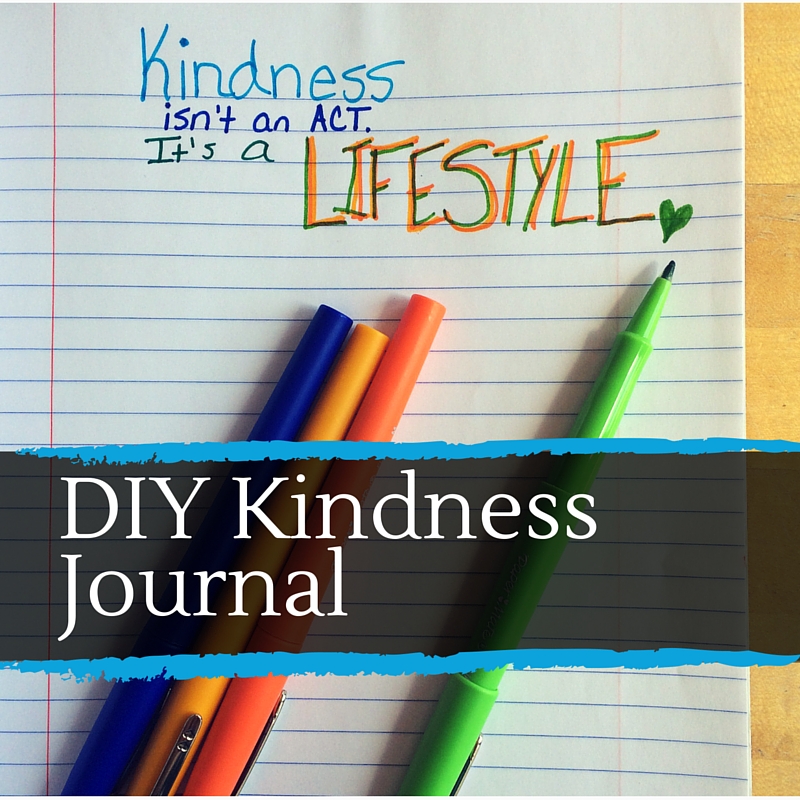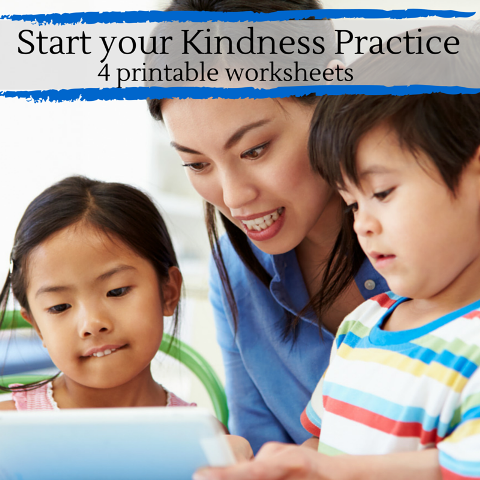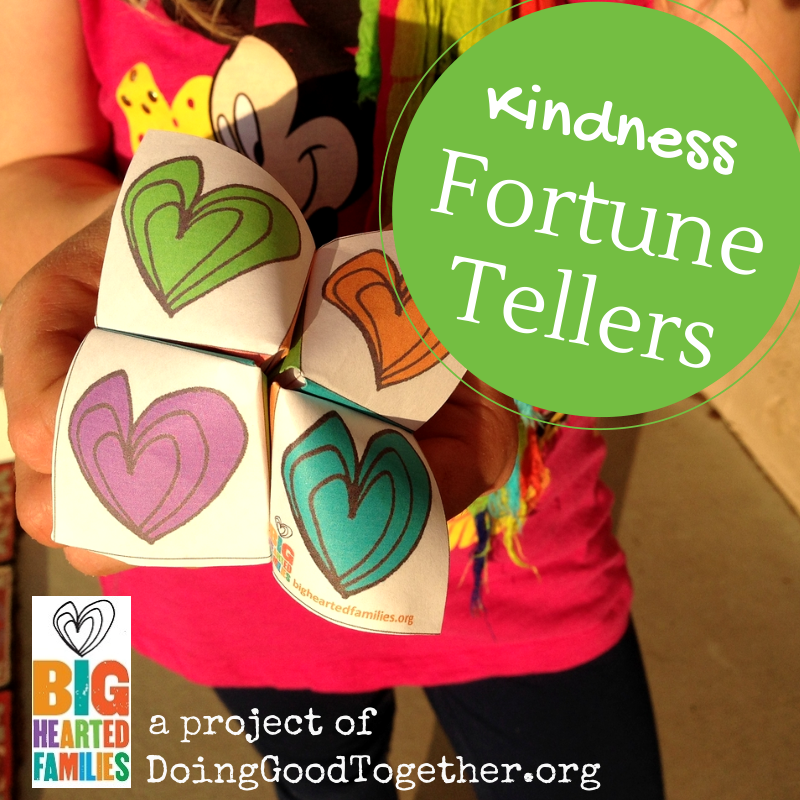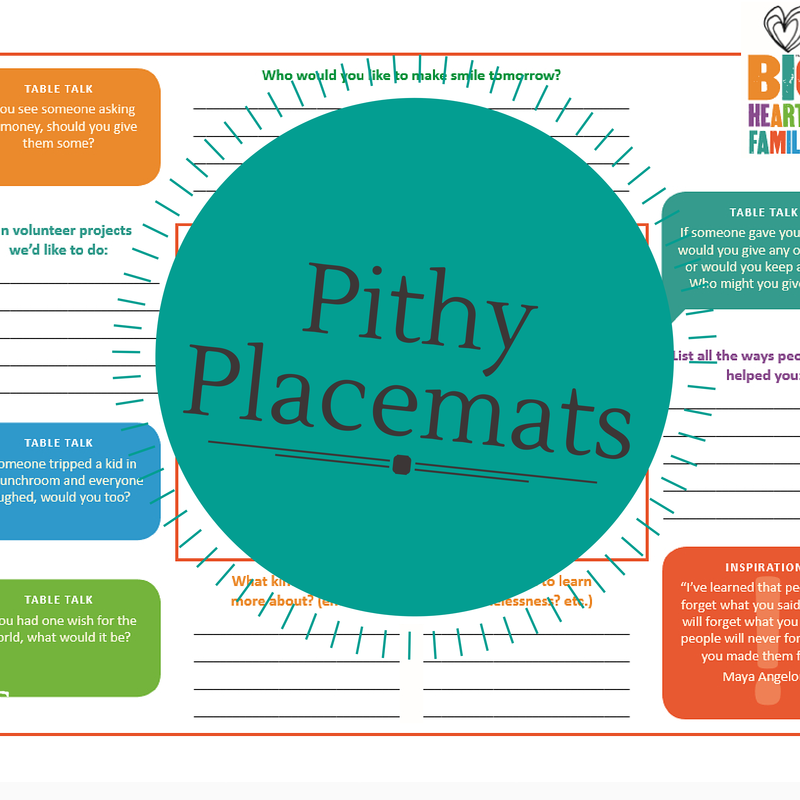We're often told it's better to role model desired behavior rather than lecture about it. As the saying goes, our kids will remember what we do, not what we say.
But don't let this fool you into thinking your words don't matter. The way we reflect, the way we wonder with our children will prepare them for a lifetime of compassion.
Daniel Kahneman's book Thinking, Fast and Slow explores the idea that some ways of thinking, including the questions we ask ourselves regularly and the ideas we attach ourselves too, become habits of thinking.
Over time, these thoughts and reflections become a core part of our identities.
That is sort of obvious, I suppose. If we are what we eat, we are also what we think day after day.
Here at Doing Good Together, we couldn't agree more with Kahneman.
For nearly fifteen years Doing Good Together has connected parents with essential tools to open a thoughtful dialogue with their kids. We've seen time and again that by reflecting on our experiences, volunteer efforts, and everyday interactions, children develop strong skills in compassion and problem-solving.
Over the years, Doing Good Together has helped my family weave compassionate conversations, big ideas, and the habit of reflection into our everyday lives. These chats are shaping who the kids are becoming. If I’m being honest, these conversations have informed the way I look at the world too.
Emerging research is confirming my family's experience. Both volunteering and conversations about giving make a difference, when it comes to raising empathetic kids.
Reflection is like running scales on the piano. It's practice for your inner voice, for your identity. Regular reflection, or mulling things over, develops within us a more thoughtful way of living, a more compassionate and curious way of living.
A way of living in wonder.
If you don't already have a volunteer project on the calendar, it's time to get started, either with our latest volunteer listing or with one of the projects in our collection. Then make reflection a key part of your parenting, starting with the tips below.
Here are a few tips to build empathy through curiosity.
Visit our project page for instructions!
1. Create an "I Wonder" Wall to encourage curiosity.
If your kids are like most, they tend to ask the weightiest or most imaginative questions just as dinner is about to burn. For times like this, we've created a crafty new project. Create an "I Wonder" wall to store those big ideas until you have time to explore them.
2. Be curious, together.
Ask your child earnest, open-ended questions more often than you dictate answers. For everyday conversation starters, visit our printable list. For the more imaginative, ad hoc questions that arise, encourage kids to logic their way to a good answer or help them research details from a reliable source.
Be careful not penalize or shut down questions, even if they catch you off guard. If you aren't sure whether they are ready (developmentally) for a question they've asked, pose a few clarifying questions to be sure of their meaning. Keep your answers short and simple. Then wait for follow-ups. Kids tend not to ask about more than they are ready to hear.
3. Swap perspectives by practicing 180s.
Teach your child to imagine the world from another person’s viewpoint. Follow up their anecdotes of the day with simple questions: I wonder how your teacher felt when the class wasn’t listening? I wonder how your classmate felt when they laughed at him? Such questions build empathy.
Also, help your child see the similarities between themselves and others, like the woman you visit at the nursing home, the shy child in class, or the man in a developing country who is seeking a loan to start a business.
You can try this perspective-taking exercise with characters in books or movies you share together too!
4. Get moving.
At my house, our best conversations are also kinetic. When we take a walk together, start a dance party, or even do chores together, big questions always come up. Somehow, doing something simple and active unlocks questions that might otherwise have been overlooked or unasked.
5. Explore DGT's extensive reflection tools.
Teach kindness with Issue-by-issue lessons designed to reflect on service projects.
Employ specific conversation starters for each project in our growing collection, designed to help kids reflect on every activity. Just pick your favorite category and choose a project to get started!
Discover topical conversation starters for books that build empathy, and
Check out this popular newsletter for more tips to Cultivate Awe and Wonder in Our Children.
In the recent book A Curious Mind: The Secret to a Bigger Life by Brian Grazer and Charles Fishman, Blazer summarizes perfectly:
"Curiosity creates empathy. To care about someone, you have to wonder about them."
Reflection matters, whether you're discussing your latest service project, a thought-provoking new book, the latest headlines, or the possibility of time travel. Start your family's compassionate habits of thinking with two little words: I wonder...
Join our Big-Hearted Families Membership Circle!
We'll help you keep kindness on your family calendar all year long.
Disclaimer: Doing Good Together™ is a participant in the Amazon Services LLC Associates Program, an affiliate advertising program designed to provide a means for sites to earn advertising fees by advertising and linking to Amazon.com.
The recommendations we offer are based solely on our mission to empower parents to raise children who care and contribute.

